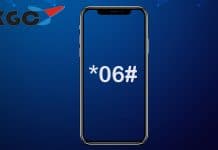Corruption has long been a major impediment to Nigeria’s development, eroding public trust, stifling economic growth, and exacerbating inequality. In response, Nigeria established dedicated anti-corruption agencies: the Economic and Financial Crimes Commission (EFCC) and the Independent Corrupt Practices and Other Related Offences Commission (ICPC). These agencies were created with the mandate to investigate, prevent, and prosecute corruption-related offenses, aiming to reduce the level of graft in public and private sectors. However, despite their efforts, questions remain regarding their effectiveness, challenges, and the overall impact of these agencies on curbing corruption in Nigeria.
Overview of Nigeria’s Anti-Corruption Landscape
Nigeria has consistently ranked poorly on global corruption indexes, with reports from Transparency International highlighting the prevalence of bribery, embezzlement, and other forms of corruption across government institutions and sectors. Over the years, public calls for accountability, transparent governance, and justice have spurred the creation of anti-corruption agencies.
The EFCC and ICPC, in particular, are mandated to tackle economic crimes and corruption, targeting corrupt officials and implementing measures to deter future misconduct. The establishment of these agencies was part of a broader government initiative to clean up the system and reinforce the rule of law. However, in a complex political landscape, these agencies face immense pressure, challenges, and resistance from various quarters.
The Economic and Financial Crimes Commission (EFCC)
History and Mandate
The EFCC was established in 2003, primarily to combat financial crimes, including money laundering, fraud, and embezzlement. It was born out of Nigeria’s need to meet international anti-money laundering standards and restore investor confidence in the economy. The EFCC’s mandate includes investigating and prosecuting financial crimes, recovering stolen assets, and collaborating with international bodies to tackle transnational crime.
Achievements and Successes
The EFCC has recorded notable successes since its inception. High-profile cases involving former governors, ministers, and public officials have been investigated, and many assets, including money, properties, and luxury items, have been recovered. The EFCC’s involvement in cracking down on internet fraud (locally referred to as “Yahoo Yahoo”) has also received significant attention, as it targets cybercrime and fraudsters operating within and outside Nigeria.
Challenges
Despite these successes, the EFCC faces several challenges:
1.Political Interference: The EFCC has been criticized for alleged selective prosecution, with accusations that it sometimes focuses on political opponents of the ruling party while sparing allies. This perception of partiality undermines public trust and raises concerns about the independence of the commission.
2.Inadequate Resources: The EFCC often faces resource constraints, limiting its capacity to investigate and prosecute cases effectively. A lack of funds, personnel, and technical tools hampers its ability to take on complex cases, particularly those involving sophisticated financial fraud.
3.Judicial Bottlenecks: The Nigerian judicial system can be slow, with cases sometimes dragging on for years. Corruption cases involving high-profile individuals may encounter multiple adjournments and legal technicalities, allowing suspects to evade justice.
4.Public Perception and Trust: Public trust in the EFCC has fluctuated over the years due to controversies and perceived politicization. This erosion of trust weakens the agency’s influence and effectiveness, as citizen support is critical for successful anti-corruption enforcement.
The Independent Corrupt Practices and Other Related Offences Commission (ICPC)
History and Mandate
Established in 2000, the ICPC was Nigeria’s first dedicated anti-corruption agency. Its mandate includes investigating and prosecuting corruption-related offenses, promoting transparency, and implementing preventive measures to curb corruption. Unlike the EFCC, which primarily focuses on financial crimes, the ICPC is more concerned with systemic corruption in government institutions, including bribery, misappropriation, and abuse of office.
Achievements and Successes
The ICPC has launched various initiatives to promote transparency, including the Anti-Corruption and Transparency Monitoring Units (ACTUs) within government institutions, which help monitor and report corrupt practices. The ICPC has also successfully prosecuted several cases, particularly those involving the misappropriation of public funds, misuse of office, and educational fraud. Additionally, the ICPC has collaborated with civil society organizations to raise awareness and advocate for preventive anti-corruption measures.
Challenges
The ICPC also faces numerous obstacles that hinder its ability to carry out its mandate effectively:
1.Limited Jurisdiction: The ICPC’s mandate is primarily focused on the public sector, restricting its ability to investigate financial crimes, cyber fraud, or other private-sector corruption unless linked to public officials. This limited jurisdiction constrains the ICPC’s scope, making it difficult to tackle the broader spectrum of corruption in Nigeria.
2.Overlapping Mandates: The presence of multiple anti-corruption agencies has led to overlapping mandates between the ICPC, EFCC, and other law enforcement bodies. This duplication sometimes causes friction, reduces efficiency, and hampers coordinated efforts in combating corruption.
3.Lack of Public Awareness: Unlike the EFCC, the ICPC’s role is less publicized, and its activities are often less visible. This low profile limits its impact, as fewer Nigerians are aware of its mandate or report cases to the commission.
4.Insufficient Autonomy: Similar to the EFCC, the ICPC has faced allegations of political influence and selective prosecution. Ensuring true independence for the ICPC would strengthen its ability to investigate cases without external pressure.
Comparative Analysis: EFCC vs. ICPC
The EFCC and ICPC share a common goal of fighting corruption but operate with distinct focuses and methodologies. The EFCC is more aggressive in its approach, targeting high-profile financial crimes and utilizing media exposure to create a deterrent effect. Meanwhile, the ICPC has adopted a preventive stance, focusing on systemic corruption in government institutions. The ICPC’s focus on ethics, transparency, and education aims to address corruption’s root causes rather than merely its symptoms.
While the EFCC has had more high-profile cases, the ICPC has been instrumental in implementing policies to prevent corruption in the long run. However, both agencies suffer from similar challenges, including political interference, resource constraints, and public skepticism. Strengthening cooperation and clearly delineating their roles could increase the overall effectiveness of Nigeria’s anti-corruption efforts.
Impact and Effectiveness of Anti-Corruption Efforts
The effectiveness of Nigeria’s anti-corruption agencies can be assessed based on a few key metrics:
1.Prosecution and Conviction Rates: Both agencies have prosecuted numerous cases over the years. However, their conviction rates are often lower than expected due to judicial delays, lack of strong evidence, and legal technicalities. While successful convictions send a strong message, the low success rate in high-profile cases limits the deterrent effect.
2.Asset Recovery: The EFCC, in particular, has recovered significant assets, both domestically and internationally. These recoveries are crucial in replenishing stolen public funds, but questions arise over the accountability and transparency of recovered assets, with critics questioning how these funds are utilized.
3.Deterrence and Public Perception: Despite numerous arrests, corruption remains a widespread issue in Nigeria. The perception that only small-scale offenders or political opponents are prosecuted has reduced the deterrent effect of anti-corruption efforts. For the agencies to be effective, there must be a perception of fairness and equality in the treatment of offenders.
4.Institutional Integrity: The effectiveness of anti-corruption agencies is contingent on their integrity and independence. Both agencies have faced accusations of political interference, and maintaining their autonomy is essential to sustain public trust. Recent reforms aimed at enhancing transparency and independence are steps in the right direction, but sustained commitment is needed.
Challenges and the Way Forward
To improve the effectiveness of Nigeria’s anti-corruption agencies, several steps are crucial:
1.Strengthening Independence: Political interference is a major hindrance to anti-corruption efforts. Providing the EFCC and ICPC with operational and financial autonomy would enable them to act independently and enforce anti-corruption laws without external pressures.
2.Enhancing Coordination and Role Definition: A clear delineation of roles between the EFCC, ICPC, and other law enforcement agencies is necessary to reduce duplication, foster collaboration, and increase efficiency. Joint task forces and information-sharing channels could improve coordination.
3.Judicial Reforms: Streamlining the judicial process is essential for expediting corruption cases. Special anti-corruption courts or judges trained to handle corruption cases can reduce delays, limit adjournments, and improve conviction rates.
4.Public Engagement and Awareness: Anti-corruption efforts require public support. Increasing awareness of the ICPC’s preventive role and creating more channels for citizens to report corruption would enhance effectiveness. Empowering civil society organizations and the media to act as watchdogs can also amplify anti-corruption efforts.
5.Building Capacity and Resources: Both agencies need adequate resources to handle the scale of corruption in Nigeria. Increased funding, personnel, and training can enhance their investigative capacities, enabling them to tackle complex cases effectively.
Conclusion
The establishment of the EFCC and ICPC marked a significant step in Nigeria’s fight against corruption, symbolizing the country’s commitment to transparency and accountability. While both agencies have made progress, their effectiveness is often constrained by systemic challenges, including political interference, resource limitations, and judicial inefficiencies. For Nigeria’s anti-corruption drive to be successful, efforts must be made to strengthen these agencies, foster public trust, and promote genuine independence.
Combating corruption is a complex task that requires coordinated efforts across all levels of society. By empowering the EFCC and ICPC, implementing judicial reforms, and engaging the public, Nigeria can create a more transparent governance system,




















